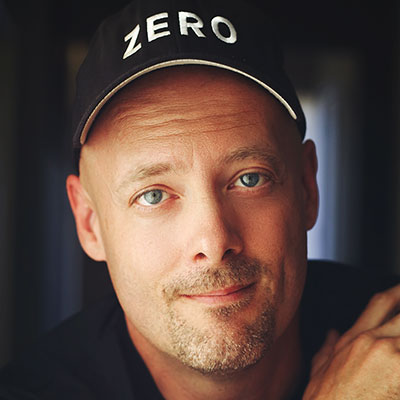
Not everyone will understand your journey. That’s fine. It’s not their journey to make sense of. It’s yours.
Zero Dean
Author | Photographer | CG Artist | Filmmaker

Not everyone will understand your journey. That’s fine. It’s not their journey to make sense of. It’s yours.
Author | Photographer | CG Artist | Filmmaker
Home » THE BOOKS: Lessons Learned from The Path Less Traveled
New Lessons Learned From The Path Less Traveled series!
Book Zero: Foundations:
A Personal Journey & the Foundational Lessons for Resilience, Authenticity & Meaningful Action.
(~400 pages)
Book 1: Waking Up:
Are You Awake? • Focus, Belief & Expectations • You, Your Higher Self & The Robot • Living With Intention • Taking Action
(~341 pages)
Book 2: Inner Strength:
Living a Life You’re Proud Of • The Manipulated Mind • Attitude & Approach • Personal Responsibility • Self-Discipline
(~299 pages)
Book 3: Confidence & Courage:
Personal Goals • Setbacks and Self-Doubt • Living Beyond Comfort • Confidence & Criticism • Self-Talk
(~339 pages)
Book 4: Authentic Living:
Authenticity & Being Yourself • Kindness • Tolerance • Leadership, Influence & Character • The Path Less Traveled • Success & Failure
(~306 pages)
Book 5: Meaningful Living:
Accomplishment & “Stuff” • Happiness • Unhappiness • Wellness • Interacting With Others • Communication • Under the Influence.
(~306 pages)
Sign up to get notified of releases!
Sign up for my newsletter below and/or follow my Amazon author page to get notified of my new release updates and special offers (including promotional offers).
The books are already written and the releases will be staggered.
Book Zero will be released in late 2025 or early 2026. The next books will follow 4-8 weeks after each release. Unlike my first book, I will be personally recording the audiobook versions as soon as I have time (fall 2025).
Six books!? Crazy, I know. These books are derived from a single mega manuscript that was split into five parts. After my first book was released in December 2018, I continued writing for Volume 2. Then the pandemic hit (remember that?) and I had even more time to write.
When I finally got around to compiling these new lessons into the second volume, I realized they naturally belonged alongside related content in the original book rather than standing alone. And when I realized I had more material than would fit into a single volume, I decided to not only revise and expand everything, but also collect and consolidate all the lessons I’ve written over the years (since 2010) and then split the single mega-manuscript into as many separate books as necessary.
Turns out that was six books.
All the books in this series can be read independently.
Like the lessons on each page, each volume can be read independently without requiring context from the others. While each lesson is designed to stand on its own and can be read in any order, the material builds progressively throughout each book and across the series, offering the greatest impact when read as a comprehensive work.
However, Book Zero stands out as the only volume containing personal journal entries (46 of them plus reflections) that provide context for my journey and highlight the lessons learned from these formative experiences along the path less traveled.
Serving as the foundation for subsequent volumes, Book Zero includes not only these personal reflections but also a lessons sampler from every chapter throughout the entire series.
I consider the Book Zero to be the most essential as it offers insight into both my personal journey and the inspiration behind the entire series.
Lessons Learned From The Path Less Traveled Volume 1 features approximately 400 potentially life-changing lessons for men and women of all ages from all walks of life.
Read a book that changes lives or give a powerful gift to anyone you care about.
Lessons Learned from The Path Less Traveled Volume 1 represents nearly a decade of lessons that were all prompted by and learned from actual life experiences along the path less traveled.
This book is packed with pages of encouragement, food for thought, reminders, and strategies to help readers cope with and overcome life’s challenges.
No fluff. Minimal white space. No giant fonts.
From page 1 to page 350, everything in this book was written & included with the potential value it may add to reader’s lives in mind. Lessons Learned From The Path Less Traveled Volume 1 features approximately 50% more content than “You Are a Badass” condensed into a book that is roughly the same physical size.
Read it your way. Lessons can be read in any order from any page.
Read a little or a lot. Lessons take anywhere from 5 seconds to 5 minutes to read. Read whenever you want & choose only what you have time for.

If this book has as much of a positive impact on your life as I believe it has the potential to, it is my hope that you’ll find it to be of far more value than the cover price. That is one of my goals in writing this book.
I truly want this book to change your life for the better.
While I can’t claim this book will change your life for the better, I can promise you that if it doesn’t, it isn’t from a lack of effort in trying to write a book that will.
Each piece is written to be as potent as possible. Every sentence, paragraph, and lesson is as concise as I was able to make it given my understanding of the lesson being shared at the time and my current skill in writing it.
Also, this is not a book that you read once, get pumped up about its contents, and then forget about. Lessons Learned from the Path Less Traveled is a book designed to be dipped into repeatedly over time — years, even. And I hope that you will.
While this book is packed full of potentially life-changing lessons for men & women of all ages, it’s not for everyone. This book is for those who are willing to keep an open mind, as well as think critically, while they read. It’s for those who believe they can change, are willing to change, and can commit to keep trying to change no matter how difficult the path may appear.
Because this book is for those who recognize that anything worth having is worth working for. And it’s for those who understand that long-lasting change takes effort and action, not wishful thinking.
Ultimately, this book is for those who already know — or those who are willing to learn — that the only thing that truly stands between the person they are and the person they want to be is themselves.
If this sounds like you — or like someone you want to be — then this book will likely be well worth your time and investment.
In order to offer the lowest price possibilities, my book is currently not enrolled in Kindle Unlimited.
Kindle Unlimited is the Netflix of books. For only $9.99 per month (which you can cancel at any time), you get unlimited access to millions of books that you can read on any device.
Better yet, you get a 30-day free trial to test the service (sometimes up to 90 days for only $2). So you can read as many books as you can during those 30 days – including mine. :)